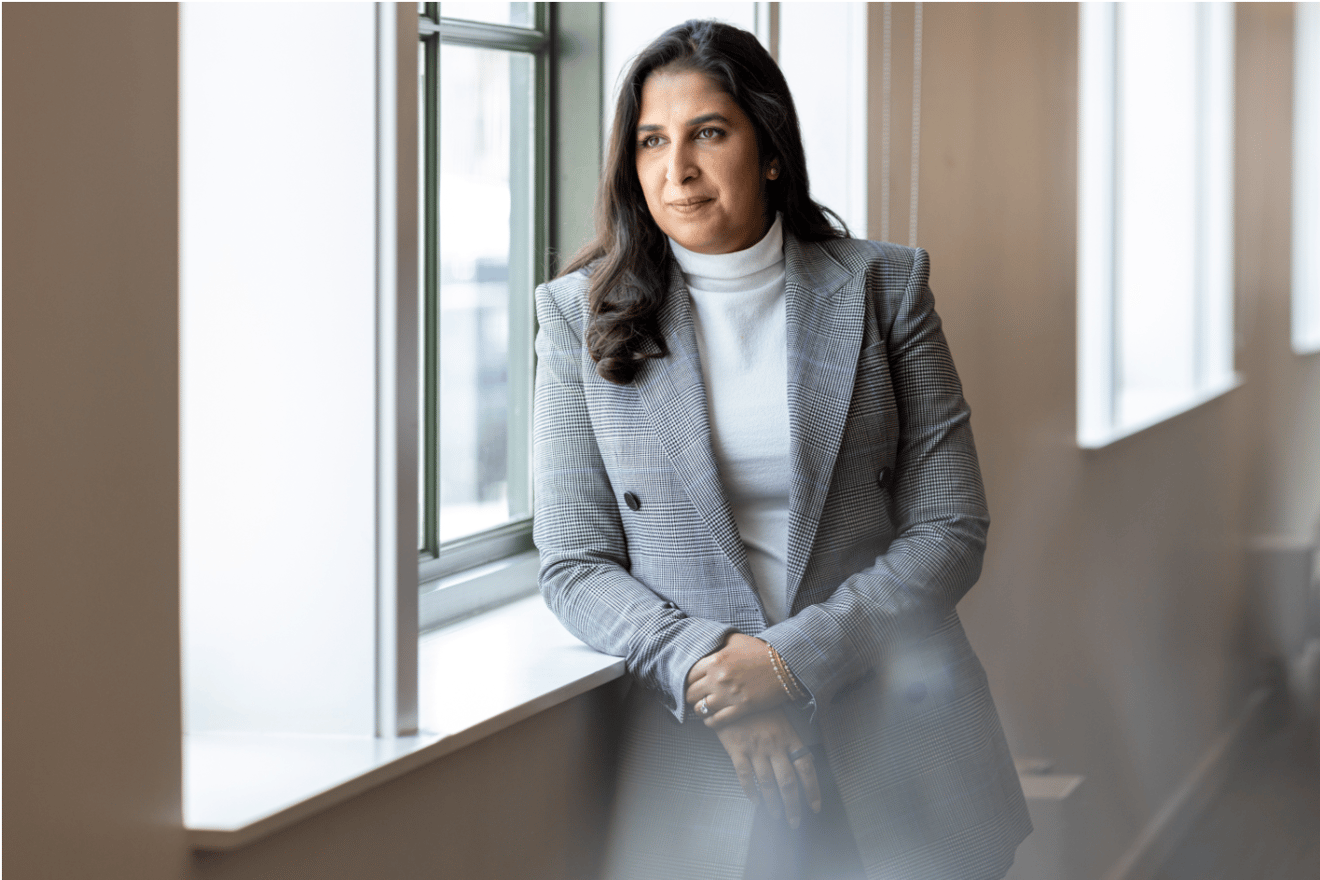From the bay
Meet health tech's gatekeepers: Y Combinator's Surbhi Sarna

CONSTANZA HEVIA FOR STAT
Covering health tech, I've observed a constant theme: What actually gets into the hands of patients and clinicians has less to do with the technology itself and almost everything to do with a venture's ability to deftly navigate things like regulations, reimbursement and relationships with hospitals. Often, it's about who they know, and who they wow with their pitch.
For years, I've been on the lookout for people I think of as "gatekeepers": The ones who steer cutting edge ideas into full-fledged products that health customers actually use. In the first in a new series of stories on these gatekeepers, I profiled Surbhi Sarna, Y Combinator's first and only health-focused group partner.
Here in the Bay, scoring a spot in the startup accelerator is almost a rite of passage for any fledgling tech company hoping to become the next Instacart, AirBnB or Coinbase. It's less known, investors and entrepreneurs tell me, for its health care knowledge base — but that's changing as Sarna's portfolio and network expand.
Sarna is also drawing more women founders into the YC world — one that is at least often perceived as heavily male, one entrepreneur told me. "She single-handedly changed our perspective on doing an accelerator and doing Y Combinator," said Oriana Papin-Zoghbi, CEO and co-founder of AOA dx, a company working on an ovarian cancer diagnostic test and member of one of the accelerator's 2021 batches. Read the full story for the details on how Sarna places her bets, the risks she wants to see founders taking, and where YC is headed next.
big tech
Amazon expands telehealth business nationwide
Amazon has expanded its direct-to-consumer telehealth operation, Amazon Clinic, announcing today that the service is available in all 50 states. True to Amazon's origins, Clinic is billed as a "virtual health care marketplace" — a place where patients can comparison shop for telehealth visits for discrete conditions, from pink eye to vaginal dryness. When the service launched last November, it had signed up two provider networks for patients to choose from; now that list has expanded to include Curai, Hello Alpha, SteadyMD, and Wheel. Blurring the line between patient and consumer even more: Clinic now also offers users the option to choose between text and video visits — usually, with text at a discount.
Mental health
Talkspace says profitability within sight
Mario Aguilar's been tracking mental health tech companies' business prospects, and Talkspace appears to be turning into one of the industry's few success stories. Late last week, the company reported another set of promising earnings and projected breaking even by early 2024. Talkspace's main business is text-, audio- and video-based therapy.
The company's earnings beat analyst expectations, and are a "step in the right direction," according to analyst groups like William Blair — Talkspace took in $35.6 million in revenue and logged a $4.7 million net loss, compared to $29.8 million in revenue and a $23 million net loss the same time last year.
As other digital health companies sputter, "[w]e obviously will emerge as one of the survivors," Talkspace CEO Jon Cohen tells Mario. "We don't need to go back to capital markets, we're going to have cash on board, we're going to be profitable."
Read Mario's analysis here.
devices
Could an ultrasound bra could detect cancer earlier?
New research out of the Massachusetts Institute of Technology details an ultrasound device that its inventor thinks could help detect breast cancer earlier, Lizzy Lawrence writes. It's a flexible patch that uses magnets to attach to a specially designed bra and makes contact with the wearer's skin through holes in the bra. The system uses a small ultrasound scanner to take images of the entire breast. Researcher Canan Dagdeviren says the research will be used to form a new company.
"I'm hoping to really make it real, and to touch people's lives," Dagdeviren said. "I want to see the impact of my technology not only in the lab, but on society."
Today, though, it's far from being real: Dagdeviren has only tested it on one patient and its ability to sort benign lumps from cancer hasn't been proven out. Read more on its potential from Lizzy.


No comments